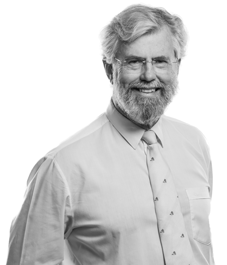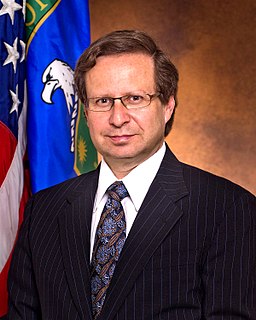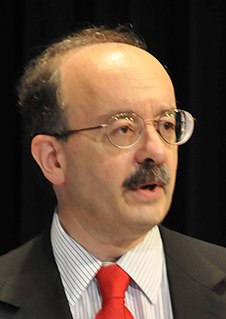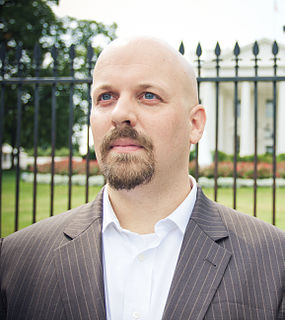 W
WFatih Birol is a Turkish economist and energy expert, who has been the Executive Director of the International Energy Agency (IEA) since 1 September 2015. He previously served as the Chief Economist and Director of Global Energy Economics at the IEA in Paris.
 W
WMarilyn A. Brown is the Regents' and Brook Byers Professor of Sustainable Systems in the School of Public Policy at the Georgia Institute of Technology. She joined Georgia Tech in 2006 after 22 years at Oak Ridge National Laboratory, where she held various leadership positions managing programs focused on the efficient use of energy, renewable energy, and the electric grid. With Eric Hirst, she coined the term "energy efficiency gap" and pioneered research to highlight and quantify the unexploited economic potential to use energy more productively.
 W
WJohn Edgar Bryson is the former United States Secretary of Commerce, the 37th person to hold the post since its establishment in 1913. Prior to this, he served as the Chairman, Chief Executive Officer and President of Edison International, the parent company of Southern California Edison and as director of The Boeing Company.
 W
WRachel Christenson is an American entrepreneur and author. She is the CEO and co-founder of Selling Energy, based in Burlingame, California.
 W
WHarold Ray Denton was the Director of the Office of Nuclear Reactor Regulation at the United States Nuclear Regulatory Commission (USNRC) and is best known for his role as President Jimmy Carter's personal adviser for the Three Mile Island (TMI) accident.
 W
WMark Diesendorf is an Australian academic and environmentalist, known for his work in sustainable development and renewable energy. He currently teaches environmental studies at the University of New South Wales, Australia. He was formerly professor of environmental science and founding director of the Institute for Sustainable Futures at the University of Technology, Sydney and before that a principal research scientist with CSIRO, where he was involved in early research on integrating wind power into electricity grids. His most recent book is Sustainable Energy Solutions for Climate Change.
 W
WChristopher Flavin is the former president of the Worldwatch Institute, an independent research organization focused on natural resource and environmental issues, based in Washington, DC. He is also a founding member of the Board of Directors of the Business Council for Sustainable Energy and is a member of the National Academy of Sciences Board on Energy and Environmental Systems, the Climate Institute, and the Environmental and Energy Study Institute. His research and writing focus is international energy and climate policy.
 W
WJosé Goldemberg is a Brazilian physicist, university educator, scientific leader and research scientist. He is a leading expert on energy and environment issues.
 W
WTetsunari Iida is director of the Institute for Sustainable Energy Policies in Japan. Following the Fukushima nuclear disaster, he is calling for a decrease in Japan's reliance on nuclear power and an increase in renewable energy use.
 W
WJay Robert Inslee is an American politician who has served as the 23rd governor of Washington since 2013. A member of the Democratic Party, he served in the U.S. House of Representatives from 1993 to 1995 and again from 1999 to 2012 and was a presidential candidate in the 2020 election.
 W
WMark Zachary Jacobson is a professor of civil and environmental engineering at Stanford University and director of its Atmosphere/Energy Program. Jacobson has developed computer models to study the effects of fossil fuel and biomass burning on air pollution, weather, and climate.
 W
WJames Prescott Joule was an English physicist, mathematician and brewer, born in Salford, Lancashire. Joule studied the nature of heat, and discovered its relationship to mechanical work. This led to the law of conservation of energy, which in turn led to the development of the first law of thermodynamics. The SI derived unit of energy, the joule, is named after him.
 W
WHans Jørgen Koch is the head of Nordic Energy Research, a platform under the auspices of the Nordic Council of Ministers.
 W
WSteven E. "Steve" Koonin is a theoretical physicist and Director of the Center for Urban Science and Progress at New York University. He is also a professor in the Department of Civil and Urban Engineering at NYU's Tandon School of Engineering.
 W
WAmory Bloch Lovins is an American writer, physicist, and Chairman/Chief Scientist of the Rocky Mountain Institute. He has written on energy policy and related areas for four decades, and served on the National Petroleum Council, an oil industry lobbying group, from 2011–2018. In 1983, Lovins was awarded the Right Livelihood Award for "pioneering soft energy paths for global security." He was named by TIME magazine one of the World's 100 most influential people in 2009.
 W
WIan Lowe is an Australian academic and writer focused on environmental issues. A physics graduate, he is an Emeritus Professor of Science, Technology and Society and former Head of the School of Science at Griffith University. He is also an adjunct professor at Sunshine Coast University and Flinders University.
 W
WJoachim Luther received his PhD in experimental physics at the Leibniz University Hannover in 1970.
 W
WWilliam Flynn Martin is an American energy economist, educator, and international diplomat. Martin served as Special Assistant to Ronald Reagan for National Security Affairs, Executive Secretary of the United States National Security Council, and United States Deputy Secretary of Energy during the Ronald Reagan Administration. He was President of the Council of the University for Peace, appointed to the Council by Secretary General of the United Nations Kofi Annan. In 1992, he was Executive Director of the Republican Platform committee under George H. W. Bush.
 W
WAndrew Ian McNamara is an Australian politician. He was a Labor member of the Legislative Assembly of Queensland from 2001 to 2009, representing the district of Hervey Bay. He served as Minister for Sustainability, Climate Change and Innovation from 2007 to 2009, under the premiership of Anna Bligh. Currently, Mr McNamara was the CEO of the Chiropractors' Association of Australia.
 W
WGérard Mestrallet is a French manager who served as chairman of the board of directors of Engie and as CEO from 2008 to 2016. He is also the chairman of Suez.
 W
WVladimir Stanislavovich Milov is a Russian politician and the former chairman of the Russian political party Democratic Choice. From May to October 2002, he served as Deputy Minister of Energy of the Russian Federation. He was a member of the Federal Political Council of the democratic movement Solidarnost (2008-2010) and one of the founders of the coalition "For Russia without Lawlessness and Corruption". He was also the president of the Institute for Energy Policy, a Moscow-based independent think tank until 2013.
 W
WRichard L. Morningstar is the former United States Ambassador to Azerbaijan. He was formerly Special Envoy of the United States Secretary of State for Eurasian Energy. Currently, Ambassador Morningstar is the founding Director and Chairman of the Global Energy Center at the Atlantic Council. He also serves as a Senior Advisor at Albright Stonebridge Group, a global business strategy firm.
 W
WPhilip David Radford is an American activist who served as the executive director of Greenpeace USA. He is the founder and President of Progressive Power Lab, an organization that incubates companies and non-profits that build capacity for progressive organizations, including the Progressive Multiplier Fund and Membership Drive. Radford is a co-founder of the Democracy Initiative, was founder and executive director of Power Shift, and is a board member of the Mertz Gilmore Foundation. He has a background in grassroots organizing, corporate social responsibility, climate change, and clean energy.
 W
WMahmudur Rahman is the one of the owners and acting editor of one of Bangladesh's Bengali daily newspapers, Amar Desh. He is also an author, engineer and businessman.
 W
WGirish Sant was a noted energy analyst held in high esteem as an energy policy commentator from India. He co-founded the non-governmental organisation Prayas in Pune, India. His analytical inputs helped shape India's energy policy over the decades of the 1990s and 2000s. He was considered an effective team builder and mentored several energy researchers and activists.
 W
WBenjamin K. Sovacool is an American academic who is director of the Danish Center for Energy Technology at the Department of Business Technology and Development and a professor of social sciences at Aarhus University. He is also professor of energy policy at the University of Sussex, where he directs the Center on Innovation and Energy Demand and the Sussex Energy Group. He has written on energy policy, environmental issues, and science and technology policy. Sovacool is editor-in-chief of Energy Research & Social Science.
Peter Tertzakian is an economist and author. He is the Deputy Director of the ARC Energy Research Institute, a Managing Director of ARC Financial Corporation, an energy-focused private equity firm, and the creator of Energyphile, a multimedia project exploring the past, present and future of our energy circumstance. His first two books, the bestselling A Thousand Barrels a Second and The End of Energy Obesity, examine the transformation of the global energy sector through economic, environmental and geopolitical pressures. His latest book, The Investor Visit and Other Stories, explores disruption, denial and transition in the energy business.
 W
WJames Watt was a Scottish inventor, mechanical engineer, and chemist who improved on Thomas Newcomen's 1712 Newcomen steam engine with his Watt steam engine in 1776, which was fundamental to the changes brought by the Industrial Revolution in both his native Great Britain and the rest of the world.
 W
WDaniel Howard Yergin is an American author, speaker, energy expert, and economic historian. Yergin is vice chairman of IHS Markit, a research and information company which absorbed his own energy research consultancy Cambridge Energy Research Associates in 2004. He has authored or co-authored several books on energy and world economics, including the Pulitzer Prize–winning The Prize: The Epic Quest for Oil, Money, and Power, (1991) The Quest: Energy, Security, and the Remaking of the Modern World (2011), and The New Map: Energy, Climate, and the Clash of Nations (2020). Yergin's articles and op-eds on energy, history, and the economy have been published in publications such as The Wall Street Journal, The New York Times, The Washington Post, and the Financial Times. All of Yergin's books have been drafted in long-hand. Currently a director on entities such as the Council on Foreign Relations and the United States Energy Association, he is also a trustee of the Brookings Institution and a long-term advisor to several U.S. administrations, as well as chairman of the annual CERAWeek energy conference.